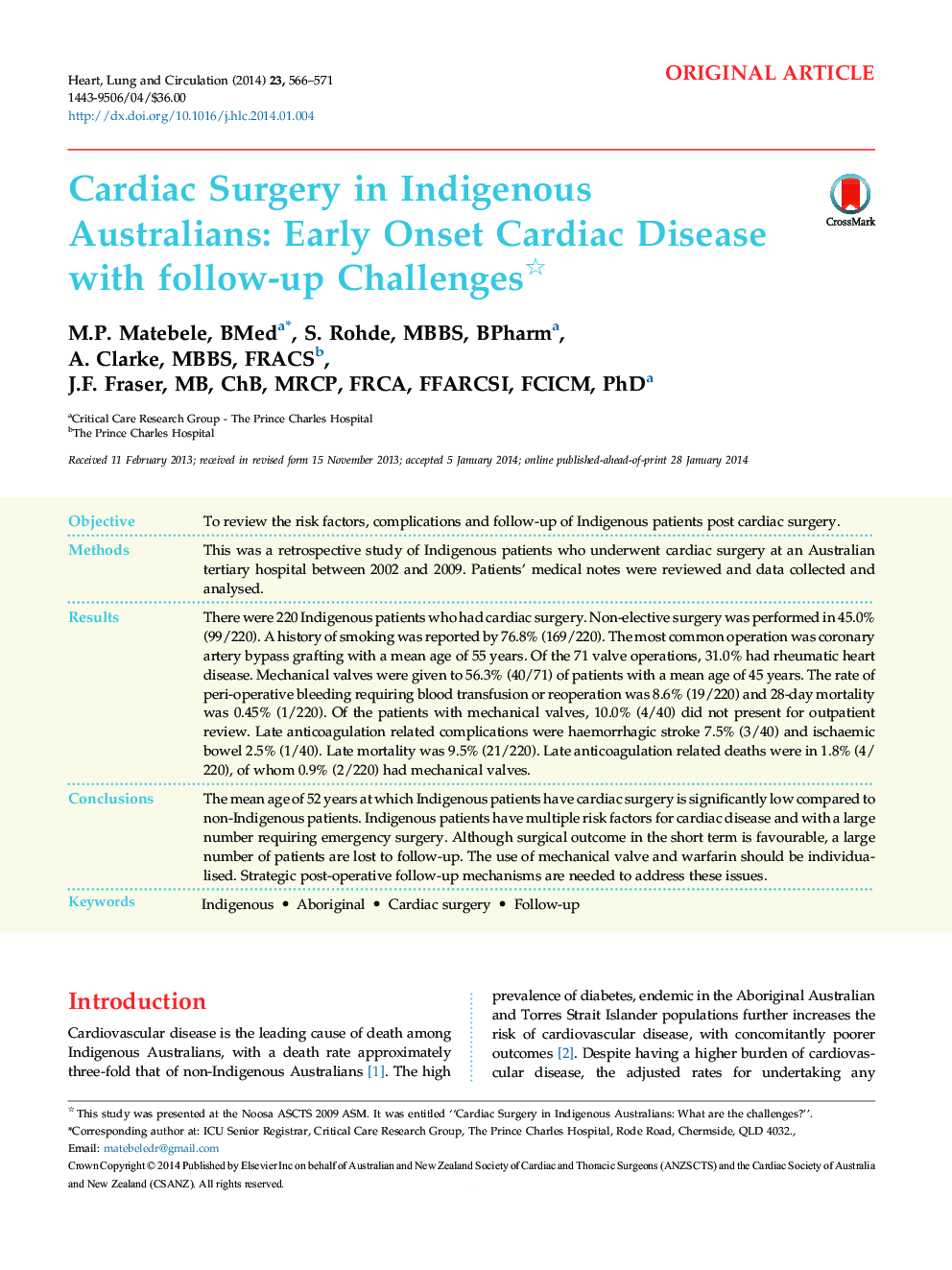| Article ID | Journal | Published Year | Pages | File Type |
|---|---|---|---|---|
| 2918046 | Heart, Lung and Circulation | 2014 | 6 Pages |
ObjectiveTo review the risk factors, complications and follow-up of Indigenous patients post cardiac surgery.MethodsThis was a retrospective study of Indigenous patients who underwent cardiac surgery at an Australian tertiary hospital between 2002 and 2009. Patients’ medical notes were reviewed and data collected and analysed.ResultsThere were 220 Indigenous patients who had cardiac surgery. Non-elective surgery was performed in 45.0% (99/220). A history of smoking was reported by 76.8% (169/220). The most common operation was coronary artery bypass grafting with a mean age of 55 years. Of the 71 valve operations, 31.0% had rheumatic heart disease. Mechanical valves were given to 56.3% (40/71) of patients with a mean age of 45 years. The rate of peri-operative bleeding requiring blood transfusion or reoperation was 8.6% (19/220) and 28-day mortality was 0.45% (1/220). Of the patients with mechanical valves, 10.0% (4/40) did not present for outpatient review. Late anticoagulation related complications were haemorrhagic stroke 7.5% (3/40) and ischaemic bowel 2.5% (1/40). Late mortality was 9.5% (21/220). Late anticoagulation related deaths were in 1.8% (4/220), of whom 0.9% (2/220) had mechanical valves.ConclusionsThe mean age of 52 years at which Indigenous patients have cardiac surgery is significantly low compared to non-Indigenous patients. Indigenous patients have multiple risk factors for cardiac disease and with a large number requiring emergency surgery. Although surgical outcome in the short term is favourable, a large number of patients are lost to follow-up. The use of mechanical valve and warfarin should be individualised. Strategic post-operative follow-up mechanisms are needed to address these issues.
